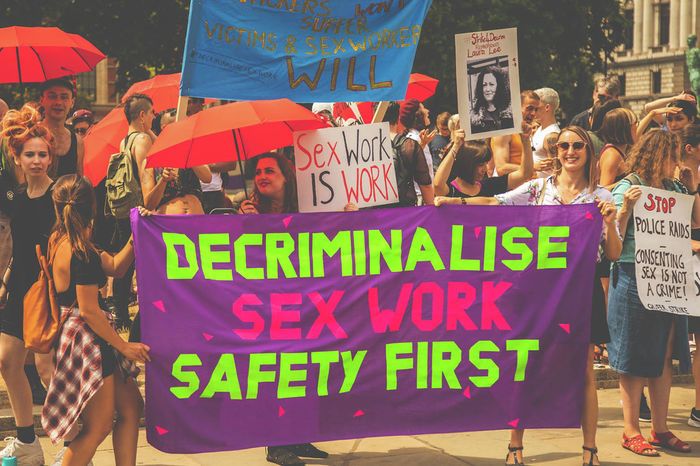We must not return to pre-Covid socialising
As we look towards a world without the pandemic, Amy Howell argues that our current trajectory out of Covid is insufficient

The semantic field relating to June 21 (or, more lately, July 19), roadmaps and post-Covid life is one that I strongly associate with extremes: from in-person language classes to late-night pubs and clubs, adrenaline is the common denominator. It is natural to attempt to reconcile taking advantage of every opportunity of which we have been deprived, experiences which are tainted with additional risk, unfamiliarity, and concerns over the brevity of these moments: it is in these fragile contexts that excitement and anxiety become blurred.
Prime Minister Boris Johnson’s calls for a “heavy dose of caution” in advance of May 17, echoed in those calls for the delaying of the roadmap earlier this month, and, closer to home, those of our own Vice Chancellor - however unwelcome they may be for those who look wide-eyed, not terrified, at the indoor seating area of Spoons - are not ones to be dismissed. Citing new variants and vaccine progress are important reasons, but those that fall closer to home are not to be ignored either.
“Post-covid socialising is not just post-Covid, but also post-Sarah Everard socialising”
It will not have escaped the eyes of anyone who spends at least slightly too much time on Camfess that following or evading Covid rules has created somewhat of a binary in our social mannerisms. Especially amidst heated debates in the aftermath of C-Sunday and the weeks of term prior to Stage 3 of the roadmap on May 17, caution and hesitancy in social experiences controlled by Covid-19 guidelines were isolating emotions.
We’ve grown to romanticise pre-Covid life over the past 15 months: memories of the maskless claustrophobia of clubs with drunken shouting and the dissonant undertones of anxiety blurring into the music and atmosphere. Post-covid socialising is not just post-Covid, but also post-Sarah Everard socialising.
In the pre-Covid days, the social experience of night clubs and late night pub trips were not without discomfort for many, and the closure of these destinations, replaced with socialising within College grounds, was, for a variety of reasons, a source of relief: the flexibility to leave a gathering amidst rising anxiety levels, to leave at your preferred time without facing a dark walk home alone, and the absence of crowded clubs with strained conversations over deafening music, the inaccessible steps down to the club leading to a sensory hell.
Covid anxiety syndrome, a term coined by Scottish researchers, and its impact for those affected, is helpful in legitimising many of the emotions and hesitancies felt as the roadmap progresses: just as we have grown to normalise mental illness, in the same way we must not only understand but actively support those whose anxieties surrounding the pandemic do not ease in sync with the restrictions.
“We risk replacing a huge emotional burden upon, or excluding entirely, these groups of people”
A post-July 19 world will not only pose challenges for those feeling this particular type of anxiety: the number of people who are of a marginalised gender, or struggle with sensory conditions or mental illnesses that affect their ability to be in social, crowded or loud situations (to name only a few), are not a minority. Include in this equation the number of people for whom getting Covid-19 is still a significant fear, and this figure becomes a sizable majority. Yet the pre-covid social scene doesn’t reflect the fact that this variety of socialising is hardly accessible, comfortable or safe for a significant proportion of people. If we are to habitually and blindly return to our pre-Covid ways, we risk replacing a huge emotional burden upon, or excluding entirely, these groups of people.
Similarly, the reports of public places being made less accessible for wheelchair users during this stage of the roadmap are signs that we are deteriorating, rather than making progress, in not only emotional and social accessibility but also physical accessibility: the inference here that accessibility, and making the unlocking of society something that everyone can enjoy, is something that does not require intentional actions is a deeply concerning one. We must not forget the progress we made prior to the pandemic as we look towards a world without it: the fulfilling of the roadmap is deeply insufficient if it is not universal.
Over the past 15 months, shared preferred means of socialising has not been a significant contributing factor in the establishment of friendships, as it has been in previous, non-covid years: amidst rules of six we have had to be more intentional in our social lives, and more conscious in ensuring we are behaving safely. Amidst our eagerness to leap towards a post-Covid life, it is important that we do not do so blindly. Despite the resentment that we naturally feel towards the pandemic, looking towards the future without considering what we should do differently and what lessons we can take from this period is wasteful of a very necessary opportunity to improve our outlook and practices within a post-covid social scene. As we “re-learn to socialise,” intentionality, consciousness and by extension accessibility, are not values that we can afford to forget.
 Interviews / You don’t need to peak at Cambridge, says Robin Harding31 December 2025
Interviews / You don’t need to peak at Cambridge, says Robin Harding31 December 2025 News / Unions protest handling of redundancies at Epidemiology Unit30 December 2025
News / Unions protest handling of redundancies at Epidemiology Unit30 December 2025 Comment / What happened to men at Cambridge?31 December 2025
Comment / What happened to men at Cambridge?31 December 2025 Features / ‘Treated like we’re incompetent’: ents officers on college micromanagement30 December 2025
Features / ‘Treated like we’re incompetent’: ents officers on college micromanagement30 December 2025 Theatre / We should be filming ADC productions31 December 2025
Theatre / We should be filming ADC productions31 December 2025









